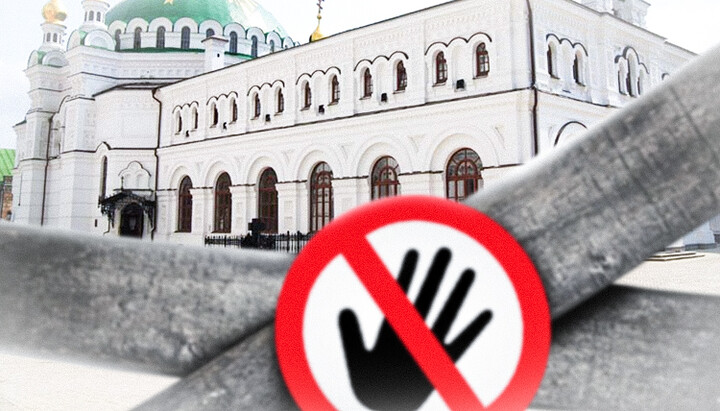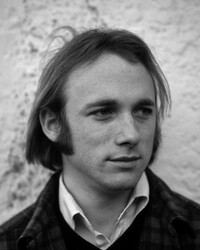The last service of UOC in the Upper Lavra: are the Bolsheviks’ times back?

The UOC had its last service in the Upper Lavra, as the authorities refused the lease with the Church. Are the Bolsheviks' times back like it was 100 years ago?
On the last day of 2022, an event took place in Kyiv to be remembered by its participants with tears in their eyes. December 31 was the last day when the authorities allowed the UOC to hold a service in the upper part of the Kyiv-Pechersk Lavra.
A huge number of people gathered in the Refectory Church. The All-Night Vigil had already ended, but no one was dispersing. People, together with the priests, sang carols, and then – the Easter Troparion and stichera: "May God arise and His enemies be scattered!"
With the last day of the year, the five-year lease term of the Upper Lavra temples, the Assumption and the Refectory, ended. And the state decided not to renew it.
Head of the National Security and Defense Council Oleksiy Danilov: “They ask today: give us Lavra again so that we can reign there… Well, listen, society demands justice.”
The abbot of the Lavra says that Muslims and Catholics allow the Orthodox to pray at Christian shrines, but believers are denied access to their own shrines at home.
Metropolitan Pavel: “Muslims have always allowed us to pray at St. Nicholas’s tomb. Catholics allow us to pray at the holy apostles' tomb, at St. Nicholas's relics. But our people, who think they are the navel of the world, are driving us from our shrines in our land.”
In 1988, on the day of the millennium of the baptism of Rus', monastic life was revived in the Kyiv-Pechersk Lavra. Since then, prayer has never stopped here. The buildings were rebuilt by the efforts of the monastery, the temples were restored.
Metropolitan Onuphry: “This celebration was akin to a man who was in shackles for a very long time. He was unchained and set free. It was a great spiritual joy.”
35 years have passed, and now there are tears in the eyes of believers. The temples where they prayed for many years are being taken away from them. People went out into the street, looked at their shrine, listened to the ringing of the Lavra bells for the last time.
From the next day, chains and locks were hanged on the doors of the temples. The Upper Lavra was closed. Special commissions were assigned to check the activities of the UOC in the Upper Lavra, and then in the Lower Lavra, in the monastery itself.
Everything is the same as 100 years ago. Then there were also commissions, although not Ukrainian, but Soviet ones. At the beginning of the 1920s, the soviets closed the temples of the Lavra. In 1923, a museum of worship and life was opened here. And in 1926, the Soviet government created the Kiev-Pechersk National Reserve, which manages the Lavra today. Shortly after the creation of the reserve, the monks from the Lavra were evicted, and some were shot.
Now in Ukraine there is a fierce struggle against the legacy of the totalitarian Soviet past. Monuments are demolished, hundreds of streets are renamed. Paradoxically, instead of dissolving the ridiculous reserve created by the Bolsheviks in the Lavra and returning its property to the Church, the Ukrainian government is doing exactly the same thing as the communists – driving people out of churches and putting locks on their doors.
The Bolsheviks expelled believers from the Refectory Church in order to house a museum of atheism in it. Why did the authorities expel thousands of parishioners from Refectory and Assumption churches today? Everything indicates that the shrines will be given to the "correct" confession – the OCU.
Historians say that the museum of atheism in the building of the Refectory Church was empty. Nobody wanted to come here voluntarily: people were driven by force. What will be the situation here if the Lavra is transferred to the OCU? Obviously the same.
Let's compare the number of people in the main churches of Kyiv of the UOC and the OCU on the same day, at the same time, on December 31.
This is the Refectory Church of the UOC. It is completely jammed. And although it was a special day, not much less people gathered here for regular services. And here is the service of Epifaniy Dumenko in the St. Michael Monastery. We see how many parishioners are here. Despite the fact that the St. Michael Monastery is several times smaller than the Refectory church, it looks completely empty.
Right across the road opposite the Lavra, the OCU has the St. Theodosius Monastery. Let's see how many people come there. This video was not taken on the same day, but, according to eyewitnesses, on December 31, 4 people were at the service here. There are 30-40 regular parishioners of the above monastery. If the Lavra is transferred to the OCU, half of these people might be sent to the Refectory and Assumption churches. Will they fill them up? The question is rhetorical.
The situation is similar around the Pochaiv Lavra, which became the focus of deliberations by the Uniates and representatives of the OCU on social networks to the effect who will get it if it is taken away from the believers of the Ukrainian Orthodox Church. Look at these shots from the celebration of the holiday of Amfilochius of Pochaev on January 1st. The huge temple is completely packed. Note this is the morning of the New Year, when Ukrainians usually just go to bed after a stormy feast.
The footage from the Kyiv-Pechersk and Pochaiv Lavra shows that for the believers of the UOC, their temples are not numbers in ratings or polls, nor are they social status. These are the shrines. Yes, following the example of the Bolsheviks, these shrines can be taken away from them and a modern museum of atheism can be opened there. You can just drive the monks out of there. But what will it give? Nothing. About 220 monks live in the Kyiv-Pechersk Lavra alone. This is the same as in the entire OCU. But there are 260 monasteries in the Ukrainian Orthodox Church. What will the authorities do with empty monastic cells? Open gyms and warehouses there like in the USSR? Or rent it out for yoga classes, as the OCU does today in its Vydubychi Monastery in Kyiv?
The fate of the USSR, which closed churches, is sad – it collapsed. To step on the same Soviet rake means to repeat its fate. God is long-suffering and merciful. But He is never mocked. Historically, those who fought the Church always lost in the end.
Therefore, our authorities should not fancy they will suddenly become an exception.












